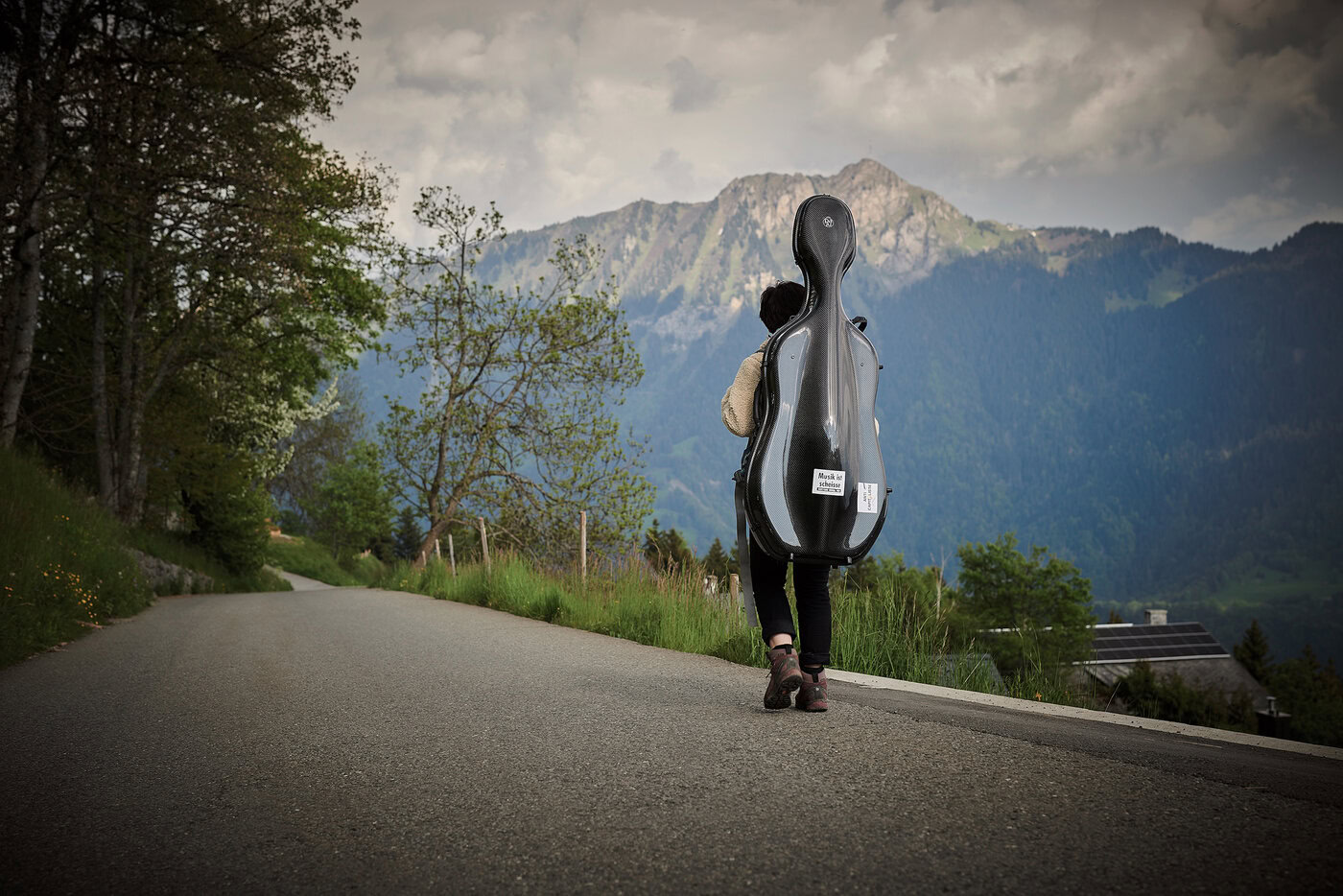Musicians in French-speaking Switzerland: anger becomes manifest
We published Sara Oswald's open letter and Meimuna's drawings in our 06-07/2025 issue. Their efforts have gained momentum.

It begins with a singular, almost fragile voice. On May 1, 2025, cellist Sara Oswald posted a letter on Facebook entitled "Invisibles". Invisible because she is already too old - 47 - to still be presented as an emerging artist. Invisible because she's exhausted from running for paltry fees on the other side of France. Invisible, finally, because her requests for support get lost in overcrowded offices.
A few days earlier, Valais singer Meimuna had already opened the breach. Winner of the Prix de l'Académie Charles Cros in 2021 and the Prix Culturel de la Ville de Sion in 2025, she posted a series of drawings on Instagram with the unmistakable title: "Faut-il quitter le monde de la musique?" ("Should we leave the music business?"). This time, the doubt took shape in the image: that of a generation that is still creating, but no longer knows if it will be able to hold on.
These isolated signals soon began to resonate. Sara Oswald decides that enough is enough. She puts a questionnaire online, like a bottle thrown into the sea, and invites her peers to respond. Sandor and Verveine, two composers and performers, joined her in the adventure. Together, they attempt to transform this raw material into a common text, supported by the Fédération des musiques genevoises de création (FGMC), a militant structure that has been defending musicians' rights in Geneva since 2019.
The manifesto takes shape. The testimonies are many, but one line runs through all the stories: financial insecurity. In its final version, circulated on September 18 (copy below), this lack of money becomes the heart of the text. Freelance artists, who are already required to be auto-entrepreneurs, must now don the militant's hat. Their appeal is not just that of isolated individuals: it speaks to the exhaustion of a musical ecosystem.
As if to underline the point, a few days after the manifesto was published, the Basel-based Arvore Foundation, which is committed to supporting artists over the long term, published a report chilling. It shows that musicians' incomes are still less than half the Swiss median. "We see these figures as a wake-up call for public funding of music and politics. More resources are needed for independent musical creation."
One cry, then others, and finally a common voice. Now it's up to politicians to respond!
_______
Manifesto of Romani musicians
Dear audience,
You who support us, and without whom our work would be meaningless, should know that despite the richness of Swiss musical production and the abundance of musical events on offer in our country, the majority of Romansh musicians live below the poverty line.
Concert fees don't allow us to earn a decent living, and we are often paid only for our stage appearances, whereas more than half of our work takes place off-stage: rehearsals, composition, production... Because of our low incomes and unpaid working hours, we also suffer from limited or non-existent access to social insurance. In the end, neither concert fees, nor subsidies, nor sales, nor royalties cover the production costs and work required to create and distribute our music.
In Switzerland, today's music is by far the most popular. Yet, while the streaming economy thrives, we are the biggest losers in this system: most Swiss artists receive nothing from the subscriptions you pay to platforms such as Spotify, Apple Music, etc., and we're the biggest losers of all.
This financial precariousness and the need to juggle several jobs to survive reduce the space needed for artistic creation, and often lead to our careers being abandoned. Many musicians throw in the towel after just a few years.
You can support us: listen to and buy our music, come to our concerts, share this manifesto with others!
On behalf of Romandie musicians, we are calling for an increase in public funding for contemporary music, and for the development, in partnership with the authorities and other players in the field, of a viable and equitable model for all.
Supporting contemporary music means guaranteeing decent working conditions, putting an end to the precariousness that has become the norm, and strengthening local employment, because a musician never works alone.
Thank you for your support. We look forward to seeing you at future concerts, and to sharing our precious moments with you!







